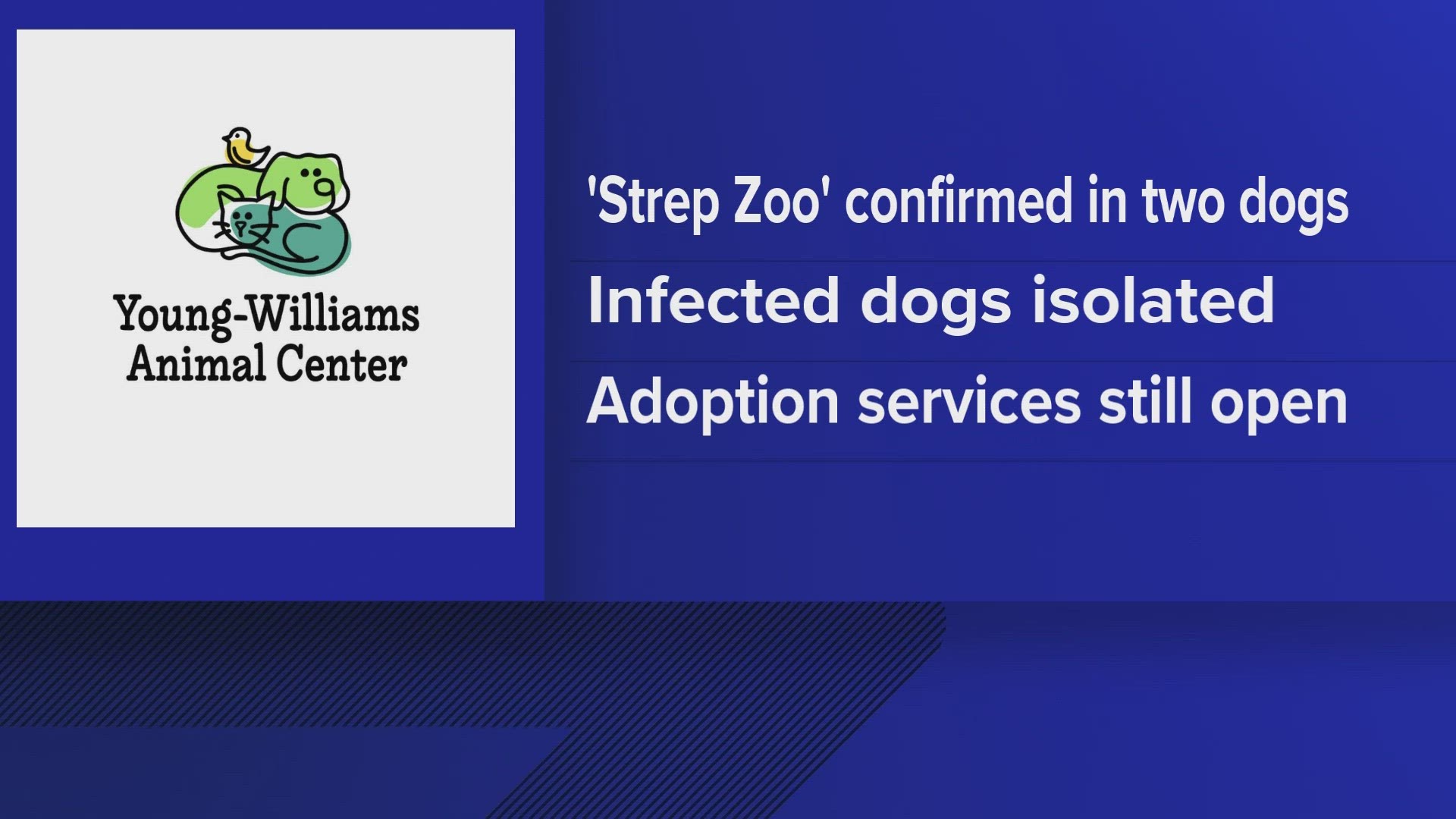KNOXVILLE, Tenn. — The Young-Williams Animal Center has identified a few cases of canine respiratory illness at its main center and is taking precautions for the safety of the animals.
According to Young-Williams, two dogs have tested positive for Streptococcus equi subspecies zooepidemicus, also known as Strep zoo, and are recovering. They also completed testing on two other dogs, who passed away earlier this week with respiratory symptoms.
The two dogs in the enclosures are separated, are doing well and have been tested for respiratory illness, according to Young-Williams.
"Every dog in our care has been placed on preventive antibiotics," Young-Wiliams said. "There is currently no evidence of widespread symptoms among the shelter’s dog population."
Adoption and other services remain safely open to the public.
“This is the time of year when canine respiratory illnesses are most common,” Dr. Lisa Chassy, medical director for Young-Williams Animal Center, said. “While this illness is not exclusive to shelters, we face additional challenges in preventing the spread of any disease when we have hundreds of animals in our care.”
For intake and surrender, Young-Williams is asking people to reach out to the intake department in advance before bringing any dogs, especially if the dog is showing symptoms of illness.
Young-Williams said strep zoo typically is associated with kennel-type settings where dogs have contact with large numbers of other dogs and often occurs after a dog has already had a respiratory illness or “kennel cough.” It is rarely found in household pets.
Symptoms of Strep zoo include coughing, sneezing, labored breathing, vomiting, fever, nasal and/or eye discharge and lethargy.
“Our plea to the public is to continue adopting and fostering dogs,” Chassy said. “Every dog fostered or adopted makes a big impact to reduce overcrowding and help avoid the spread of illness.”
If you are worried about canine respiratory disease, YWAC wants you to:
- Limit your dog’s contact with other dogs, especially dogs of unknown health status
- Keep your dog away from sick dogs
- Talk to your veterinarian about vaccinations
If you notice any symptoms of canine respiratory disease in your pets, take them to a veterinary office and keep them away from other animals to prevent the spread of the disease.

